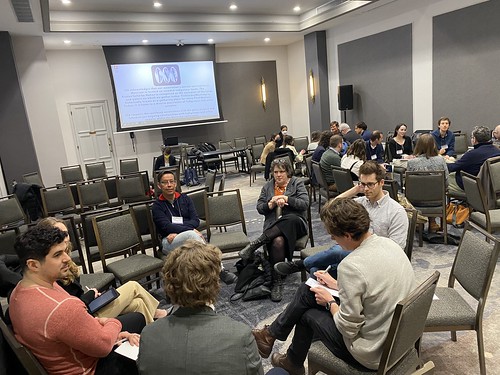I sat on the “Writing and Publishing” table at the Environmental Studies Section Speed Mentoring Roundtable during the 2023 meeting of the International Studies Association (ISA) in Montreal (Canada).
My co-panelist was my coauthor and dear friend Dr. Kate O’Neill, so we agreed to talk about the process of academic writing and publishing from our perspectives as authors and editors of books, articles, chapters and journals.
Here are a few pieces of advice we both shared that will be useful for all.
1) don’t take desk rejects personally
2) review as you’d like to be reviewed
3) as much as possible, if you get a revise-and-resubmit (R&R), drop everything and work on it and return it to the editors (my full process for working on a Revise-And-Resubmit can be found here).
4) peer reviewed journal articles are still the currency of academia – focus on those (book chapters rock but it will be hard to sell those for tenure)
5) remember to create a pipeline of work — don’t try to publish everything all at once.
6) if you are working on converting your dissertation into a book I very strongly recommend Dr. William M. Germano’s “From Dissertation To Book”.
7) remember that what you publish depends on your needs and evaluation
8) make sure that your work is LEGIBLE to the communities you want to dialogue with: your readership, your PhD committee, your tenure committee, your discipline/field.
9) while a lot of people pay lip service to interdisciplinarity, we often get evaluated on disciplinary terms.
10) when asked to review remember that usually 3 reviewers are needed per each journal article – so you may need to review just as many per paper you have under review.
11) remember that you don’t necessarily need to address every reviewer’s comment – you can pick and choose.
12) don’t take bad reviews personally (I often ask dear friends to summarize feedback for me because it’s painful).
13) read the literature broadly, deeply, ENGAGE with it, don’t just do the token citation. Make sure you engage in citational justice & your citations are diverse.
14) creating a pipeline of work is important during graduate school and afterwards
15) remember that writing (and publishing) is a social activity – find writing buddies, read each other’s drafts, support and encourage each other, provide kind feedback, join writing groups.
16) book time with yourself to write and prioritize it.
My blog has plenty of resources on publishing and writing strategies that may be useful to you all at #ISA2023


0 Responses
Stay in touch with the conversation, subscribe to the RSS feed for comments on this post.